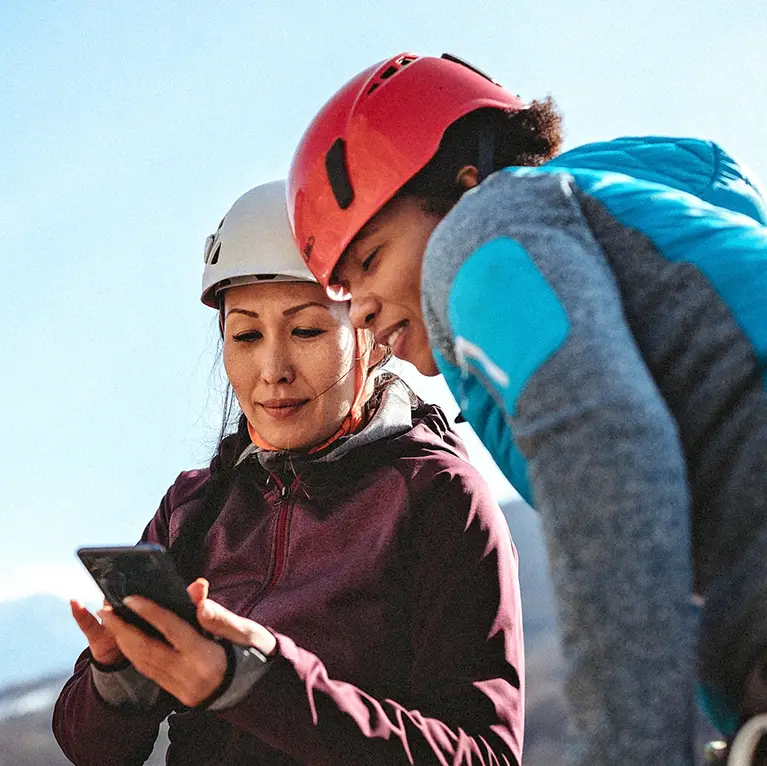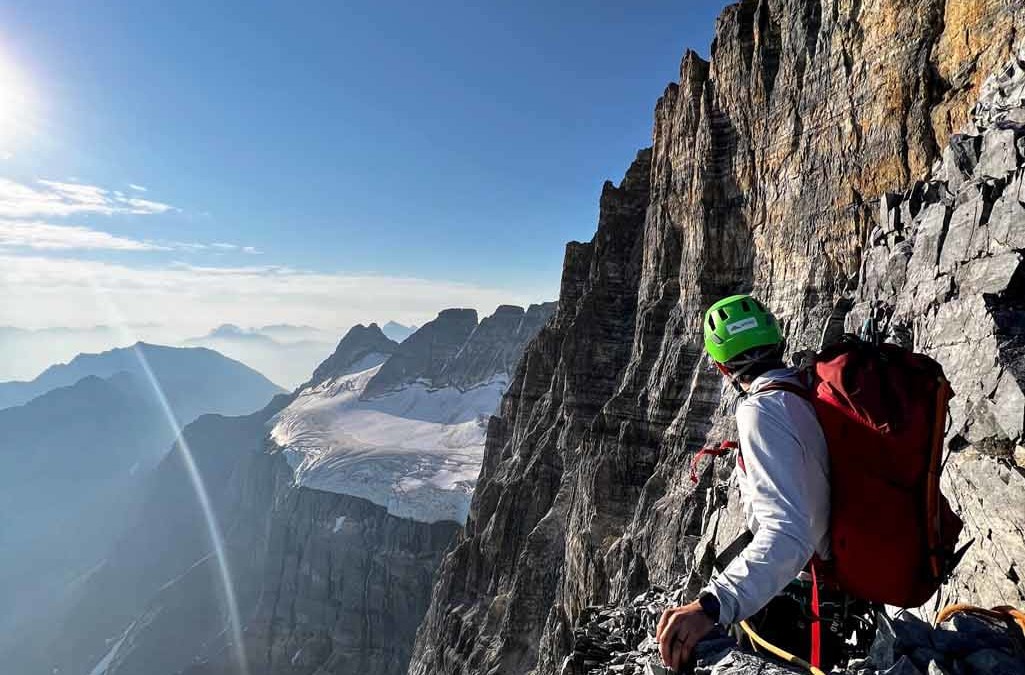
Adventure type
alpine climbing
Try ice climbing, learn to rock climb, lead & Multi-Pitch – all in the David Thompson Corridor and Bow Valley, Alberta.
Let’s get into the Alpine!
Alpine climbing is an incredible way to get to some of the less accessible places in the mountains. Climbers travel through diverse terrain with a mixture of rock climbing, scrambling and hiking. Tick off a major summit goal (the Canadian Rockies are home to many 11,000ers!), build skills, and reach spectacular heights in the mountains!

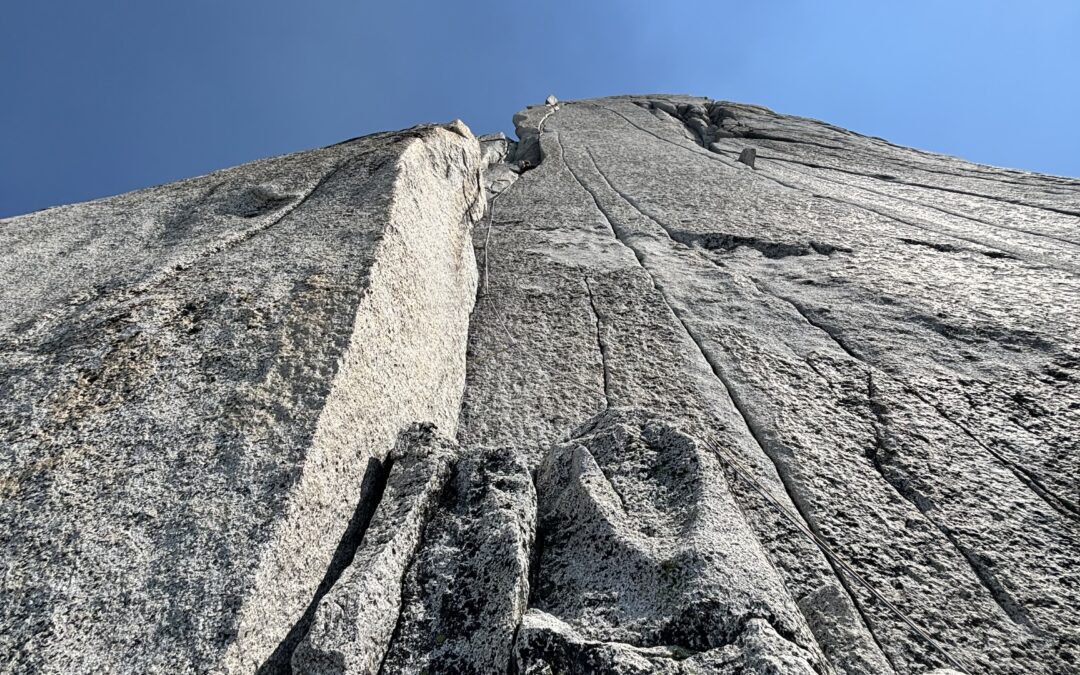
Bugaboo Classics
If you want to adventure in Canada’s Alpine Playground, this five day trip is for you. Cross impressive glaciers, climb amazing granite, and summit spectacular spires!
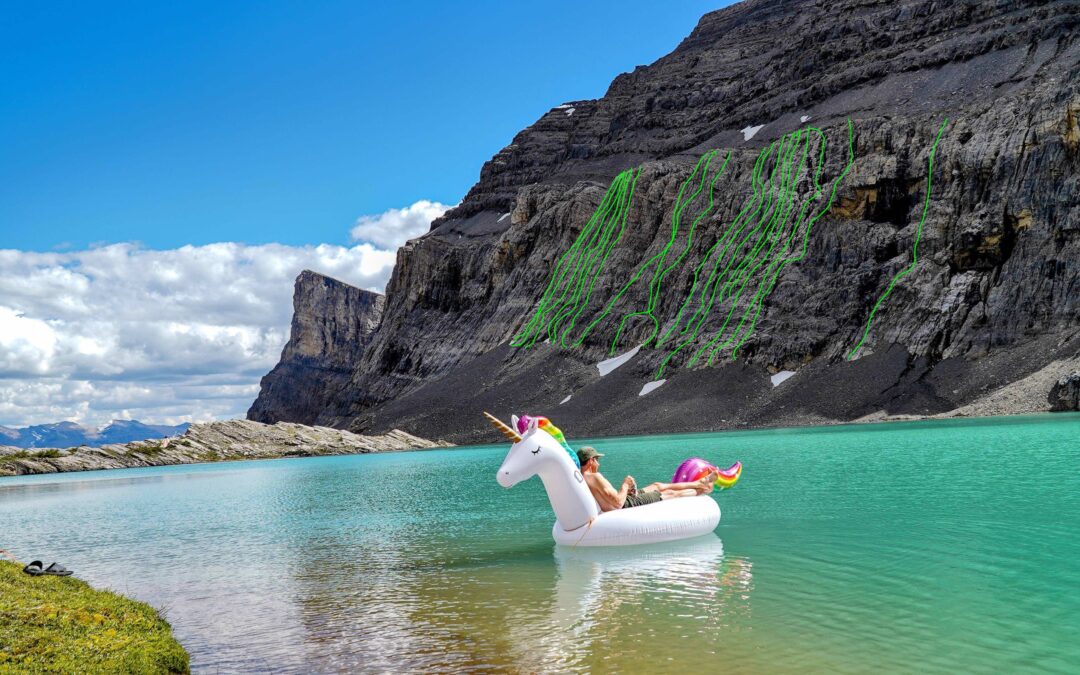
‘Wild Rock’ Cline Tarns Heli-Alpine Camp
This helicopter access, all inclusive alpine camp sets an awe inspiring stage for remote dolomite multi-pitch climbing and an 11000 foot summit.
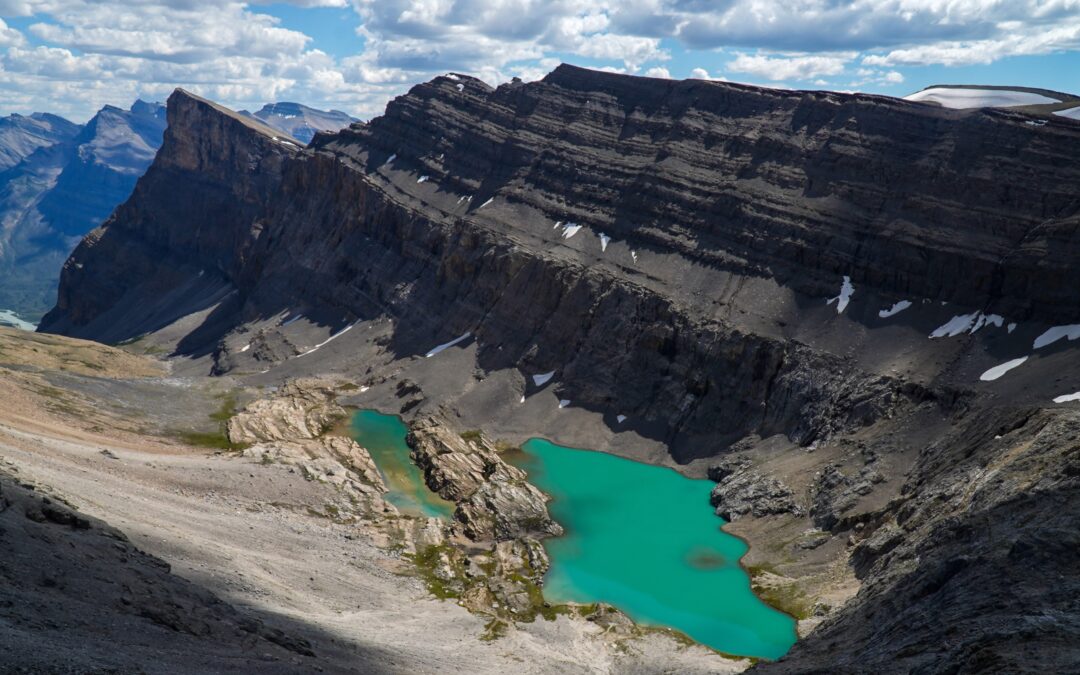
‘Classic’ Cline Tarns Heli-Alpine Camp
This helicopter access, all inclusive alpine camp sets an awe inspiring stage for remote dolomite multi-pitch climbing and an 11000 foot summit.
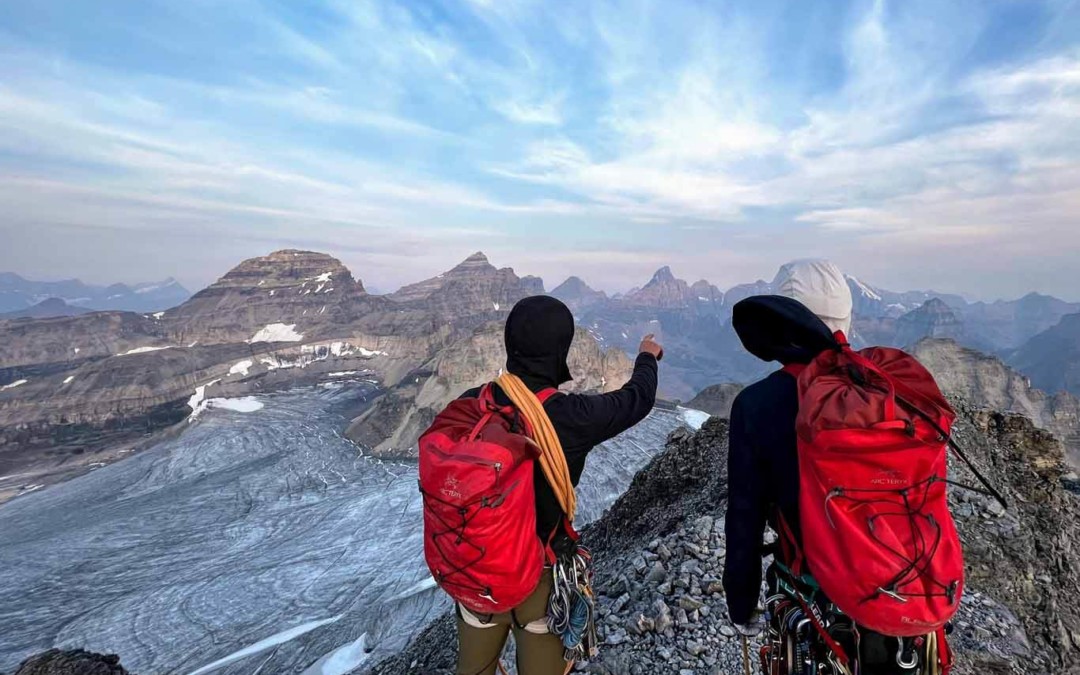
Multi-day Alpine Climbing Trips
Alpine climbing from a hut or high camp, these are some of the most amazing climbing experiences.
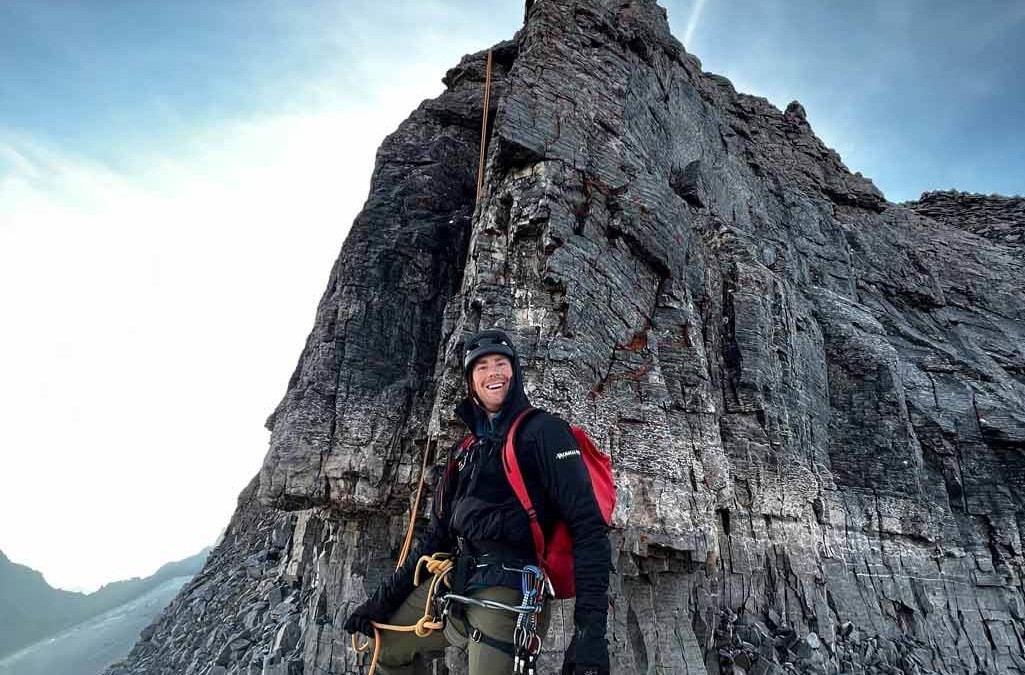
Alpine Skills Weekends
Start alpine climbing with a solid foundation! Learn to manage complex overlapping hazards in dynamic environments.
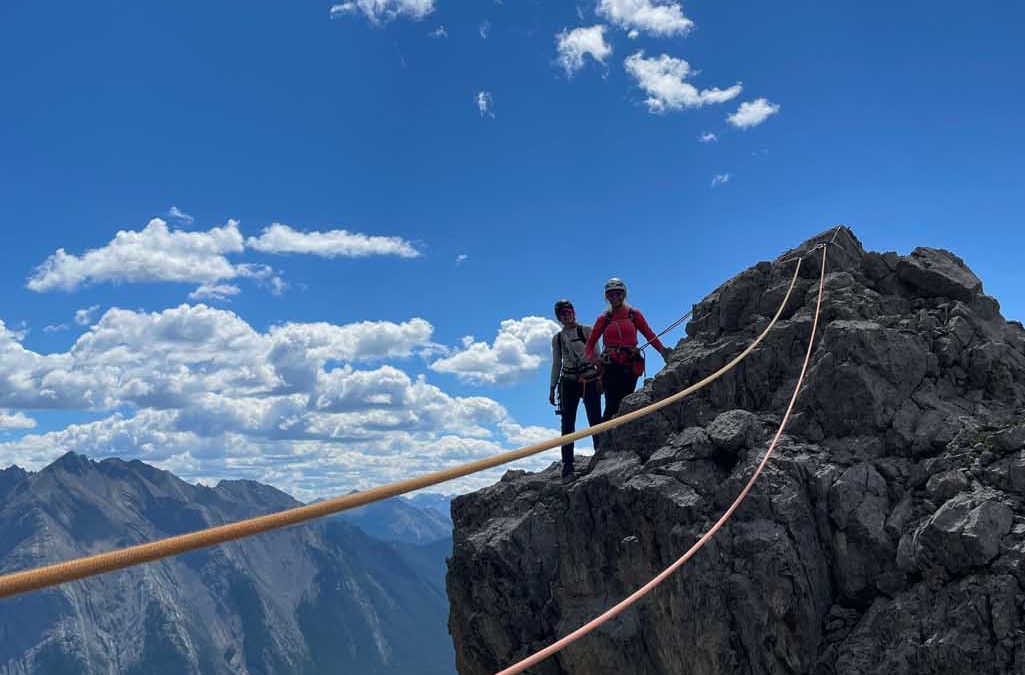
Alpine Leadership Week
Join us for an unforgettable week of alpine skill development. Refine the your ability to make decisions, and climb in the dynamic alpine environment.
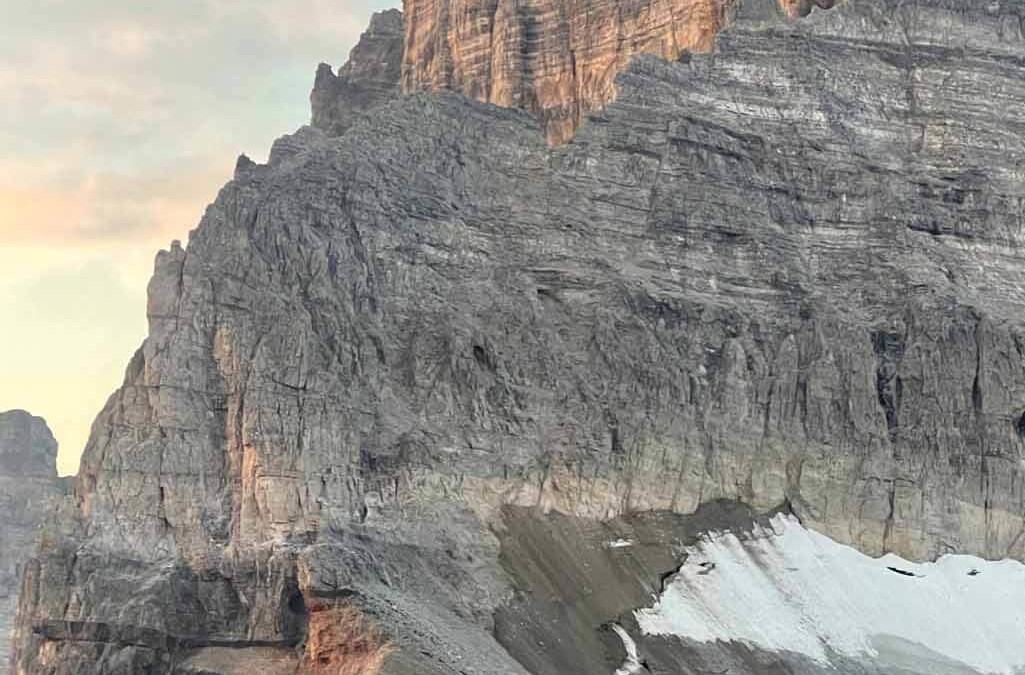
Classic Canadian Rockies 11,000ers
Tackle one of the famous 11,000 foot Rocky Mountain Summits.
Frequently asked questions about alpine climbing:
How do I get into alpine climbing?
Alpine climbing requires skill and competence in the mountains. A great start is to learn to rock climb, as almost all alpine climbing involves some alpine climbing. Here are some basic suggestions:
- Learn to rock climb
- Get the proper equipment
- Take a rock climbing safety course
- Find someone to learn and to climb with.
- Hire a guide
How do I stay safe when alpine climbing?
- Have the right equipment – alpine climbing is a technical type of climbing. It is very important to ensure you have the right safety equipment and that you know how to use it.
- Climb within your ability.
- Group dynamics – make sure your group has good communication. Weather and other stressors can impact one’s ability to hear and to communicate. Ensure your group knows the plan to communicate and is capable of communicating both interpersonally and with the correct tools.
- Have a plan – make a plan before you head out on your trip. Knowing what you will do if someone gets injured, if the conditions or weather is poor, or the trip is taking longer than planned, is crucial to a safe trip. Also make sure you share this plan with someone who is not going on the trip to enable emergency support if needed.
Additionally, know the route and track your progress using maps and navigation tools
- Check the weather forecast and conditions.
What do I need to go alpine climbing?
- Climbing helmet
- Climbing harness
- Guide belay device
- Non locking carabiners
- Locking carabiners
- Double length (120cm) dyneema runner
- Ice Axe
- Crampons
- 30-40 Litre backpack
OPTIONAL BUT BENEFICIAL:
- 5 Meter bundle of 7mm cordelette
- Petzl Micro Traxion and Tiblock
- Short Prusik or 13.5 inch Sterling Hollow Block
Is alpine climbing the same as mountaineering?
Mountaineering is where the climber’s main goal is to achieve a climb at high altitudes, while alpine climbing is when the goal is to climb with more technical challenges. Alpine climbing includes rock climbing and/or ice climbing with snow covered terrain at some point.
What is the difference between alpine climbing and rock climbing?
Rock climbing often focuses on the physical challenge of rock climbing, while alpine climbing requires greater technical skill and competence to safely climb a route.
Alpine climbing also involves more specific equipment like ice tools, and crampons.

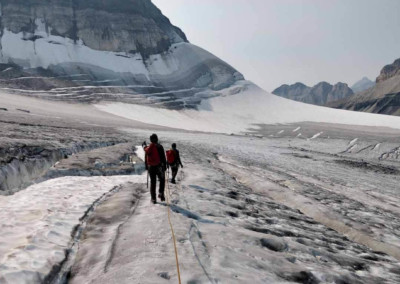
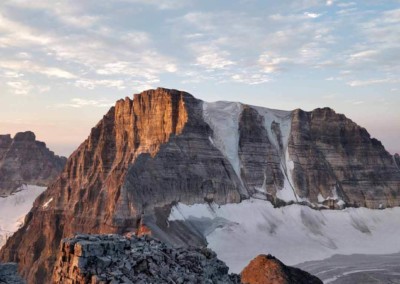
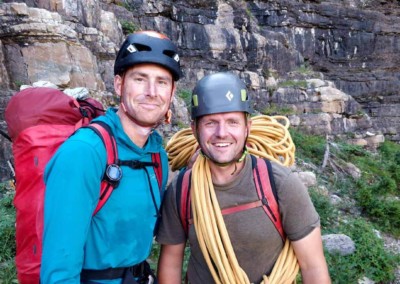
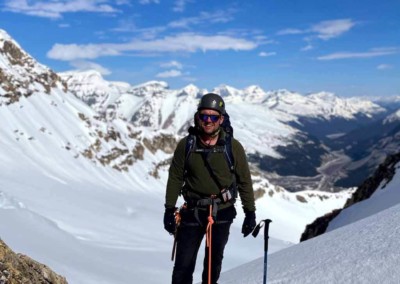
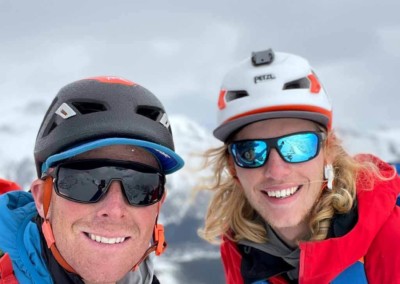
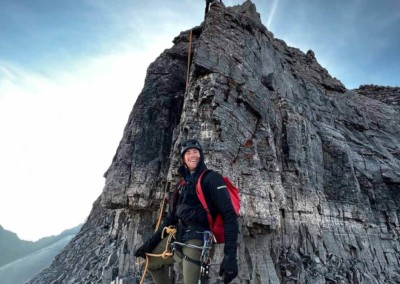
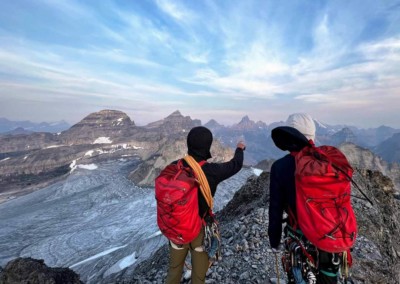
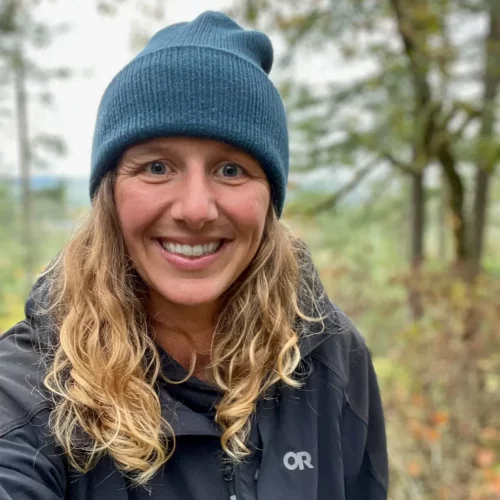 Need help deciding which trip works for you?
Need help deciding which trip works for you?